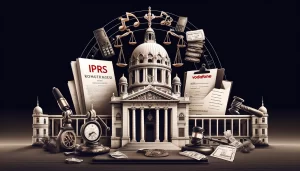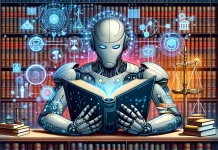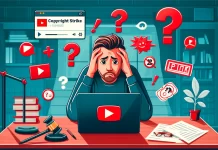Introduction
The case of The Indian Performing Right Society Ltd v. Vodafone Idea Ltd.,[i] is a significant ruling for the music industry containing critical aspects of the rights of authors to receive royalties, and particularly concerning the use of literary and musical works in telecommunications.
The Calcutta High Court, in its judgment, upheld the rights of the Indian Performing Right Society Ltd. against Vodafone Idea Ltd., reinforcing the necessity for obtaining a license from IPRS and pay royalties before commercially exploiting the musical and literary works incorporated in sound recordings as part of Value-Added Services (VAS) such as caller ring back tones.
This detailed examination of the Judgement highlights the primary issues, legal arguments, court proceedings, and implications of the case. The case was adjudicated by Justice Ravi Krishan Kapur.
Background
Amongst other orders, in one earlier orders of the Calcutta High Court in this case, the Court had on October 12, 2018, directed Vodafone Idea Limited to deposit a sum of INR 2.5 crores with the HC Registrar within three weeks of that order. Indian Performing Rights Society was praying for a mandatory injunction directing Vodafone to remove from its Value Added Services platform and other platforms all cinematograph films, sound recordings and the like where the underlying copyright in literary and musical works belong to IPRS, save and except their rights flowing from the sound recordings belonging to Saregama India Limited.
Read the detailed post on this earlier order here.
Summary of the Judgement:
Parties Involved:
- Vodafone Idea Limited (Vodafone): A prominent telecommunications service provider in India offering Value Added Services (VAS), including Caller Ring Back Tones (CRBT) whereby any caller may select songs for personal listening or as caller tunes.
- The Indian Performing Right Society Ltd (IPRS): A registered copyright society under the Copyright Act, 1957, representing authors of underlying literary and musical works, by licensing and collecting royalties over such works.
- Saregama India Limited (Saregama): A music company engaged in the manufacture, sale and publication of sound recordings including digital downloads which include both film and non-film songs.
Issue:
- Whether Vodafone is required to obtain a separate licence from IPRS and pay royalty before commercially exploiting the musical and literary works of its members as part of the sound recording?
Arguments:
- IPRS’s Arguments:
- IPRS contended that Vodafone has no lawful authority to commercially exploit the music and literary works incorporated in the sound recording of the members of IPRS without obtaining a valid licence.
- IPRS contended that Vodafone’s claim to play recordings is unsupported, as the agreements it relied upon have expired. Vodafone must independently obtain a licence from IPRS, which it has not done. In fact, the agreements between Saregama and Vodafone stipulated that any licence for exploitation of the literary and musical work has to be obtained by Vodafone from IPRS, upon payment of royalties and at Vodafone’s own cost and responsibility
- In any case, Saregama cannot grant rights for underlying works. IPRS also contended that under sections 19, 30, and 30A of the Copyright Act, 1957 (“Act”), any licence granted in violation of the Copyright Society’s terms and conditions of the rights granted shall be void. Saregama has assigned their rights in the underlying literary and musical works to IPRS including the right to collect royalties. Therefore, any licence agreement by Vodafone (for licensing such underlying rights) to Saregama is legally invalid.
- Vodafone’s Defense:
- On behalf of Vodafone, it is contended that Saregama, as the first owner of the literary and musical works in the sound recordings. They took support of Section 17(c) by which the authors and owners of the musical and literary works part with their rights when engaged in an agreement for valuable consideration.
- It was also contended that the copyright in sound recordings is independent of the musical and literary works therein therefore separate licences for underlying works is unnecessary.
- Vodafone contended that any right to royalty would accrue in favour of the author of the musical and literary work in a sound recording only if such works are used independent of the said sound.
- It was also contended that Saregama has assigned only the public performance and mechanical rights of its musical and literary works to IPRS, solely as a “collecting agent” of the royalties, without transferring ownership. Therefore, Saregama’s license to Vodafone for commercial exploitation of sound recordings does not infringe upon the rights assigned to IPRS.
Analysis of the Court
Comments on the 2012 Amendment
The court asserted that the Copyright Amendment Act, 2012 (“2012 Amendment”) have radically changed the legal framework concerning authors’ rights, aiming to protect authors and grant them right to claim “mandatory royalty sharing” on each occasion a sound recording is communicated to the public. These amendments, the court noted, reject contracts that previously compelled authors to “license away their rights”.
The Court noted that an elaborate scheme was incorporated for payment of royalties to the authors which is inter- alia recognized in the Act and the Copyright Rules, 2013 (“Rules”) framed thereunder. Section 33A of the Act provides for a Tariff Scheme by copyright societies. While under the Rules, Rule 56 pertains to a Tariff Scheme, Rule 57 provides for an appeal mechanism against determination of such tariff scheme, and Rule 58 pertains to a distribution scheme. In effect, post 2012 Amendment, the entire spectrum pertaining to competing claims of the different stakeholders having specific rights under the Act has undergone a sea change.
It was noted that “The underlying object [of the 2012 Amendment] being that creative work ought to belong to the authors and that the author should have a share in all future commercial exploitation of their work (except cinema hall).”
Rights of Authors
The court went on to quote that “copyright is not seen merely as an economic tool, a property right but as something like an extension of the personality of the author – something for his benefit and that of his heirs.”[ii]
According to a proper interpretation of the amended provisions in sections 17, 18, and 19 of the Copyright Act, authors of musical and literary works now possess additional rights, despite no amendments to sections 13 and 14. When read together, these sections grant authors specific rights and equal royalty sharing, preventing unlawful commercial exploitation without proper licensing and royalty payment to bodies like IPRS.
Therefore, despite no changes to sections 13 and 14, subsequent amendments and provisos clearly establish authors’ rights to receive a fair share of royalties. It was noted that the words “subject to the provisions of this section and the other provisions of this Act” obviously refers to all relevant sections, including sections 17, 18, and 19.
Furthermore, sections 33, 34, and 34A, alongside the third and fourth provisos to section 18, prohibit authors from waiving their royalty rights except for cinematographic films in cinema halls, thus recognizing and safeguarding authors’ rights to receive royalties for the utilization of their works. Therefore, it was clarified that the “author’s rights to receive royalties for utilization of such sound recordings has now been categorically recognised and preserved.”[iii]
In light of section 17(c) of the Copyright Act, Saregama is recognized as the initial copyright owner. However, subsequent amendments to sections 17 and 18 acknowledge the rights of authors of literary and musical works in sound recordings, which now override the claims of the first owner.
Therefore, the Court held that even if Saregama has granted a license for exploiting the sound recording, authors retain the right to claim royalties, which cannot be bypassed. Post – 2012 Amendment, Vodafone is bound and statutorily obliged to pay IPRS royalties to authors. Therefore, Vodafone’s argument that the 2012 Amendment brought about no legal changes was rejected by the Court.[iv]
Comments on IPRS v. Aditya Pandey
The court noted that the judgment in IPRS vs. Aditya Pandey (2012 SCC Online Del 2645), relied upon by Vodafone, is distinguishable and provides no assistance. With due respect, the Court found that the expressions by the Learned Judge regarding the 2012 Amendment were wholly “unnecessary and obiter”. The Court reasoned that the disputes in that case had arisen in the year 2006 and discussion on the 2012 Amendment brought up was unnecessary. The conclusion that the 2012 Amendment does not alter the Act’s provisions, as stated in Paragraph 31, was considered per incuriam by the court, overlooking the Statements of Objects and Reasons behind the 2012 Amendment Act, as well as the purpose behind various provisos and sections of the Act. The court emphasized that “The additional protection of rights of authors of such literary and musical works has been simply ignored in the said judgment”.[v]
Independent obligation to procure license from IPRS
A thorough examination of the Master Agreement dated 14 March 2014, along with the annexed agreement dated 16 June 2016, makes it unequivocally clear that Saregama did not and could not have granted any rights to Vodafone for exploiting the underlying musical and literary works. Saregama, having assigned these rights to IPRS in 1993 and again in 2017, did not possess rights over the underlying works, rendering any such assignment given to Vodafone void under section 19(8) of the Act.
It was also noted that there is a prima facie evidence of collaboration between Vodafone and Saregama in order to undermine the rights of IPRS. It was observed that “Saregama despite being a member of the IPRS has also failed to look after the interests of the authors of the literary and musical works and has acted contrary thereto.”
Additionally, it was noted that Vodafone could not produce a license compliant with section 30A read with section 19 of the Act, permitting the commercial exploitation of musical and literary works incorporated in the sound recordings.[vi]
Judgement
Therefore, the Court held that the 2012 Amendment empowers authors to collect royalties, safeguarding their statutory rights against isolationist interpretation of the Act. The Court rightly held that “One of the objects of the 2012 amendment is to protect the authors of literary and artistic works and this must now be accepted.”[vii]
In view of the above analysis and observations, it was decided that IPRS was able to make out a strong prima facie case on merits, and the balance of convenience and irreparable injury was in favour of IPRS. Therefore certain directions were passed by the Court, inter alia, as following:
- Order of injunction restraining Vodafone from engaging in or authorising communication to the public / public performance of IPRS’s repertoire of musical and literary works or any part of the same, or doing any other act infringing IPRS’s copyright in the said works without obtaining a valid licence and making payment of royalty to IPRS.
- Vodafone was also directed to disclose data and logs of actual use made by the Vodafone’s subscribers within a period of five weeks.
- The sum of Rs.2.5 crores along with any accrued interest deposited in terms of the order dated 12 October, 2018, would forthwith be made over to IPRS.
- IPRS was also allowed to claim the deposited sum of Rs. 3.5 crores as per the order dated October 1, 2018, for adjusting against outstanding royalties.
Different Interpretations
Pre – 1994 Amendment interpretations
The Supreme Court’s ruling of 1977 in Indian Performing Rights Society (IPRS) v. Eastern Indian Motion Pictures Association and Ors.[viii] had decided that under section 17 provisos (b) and (c) of the Act, when a film producer commissions or employs a composer or lyricist, the producer becomes the first owner of the copyright in the music or lyrics created. The composer or lyricist does not retain any copyright unless there is a contract to the contrary.[ix]
Even as recently as 2020, in M/S Indian Record Manufacturing Co. Ltd. v. Illaiyaraaja[x], (there the works were created between 1978-1980), the court declared that a combined reading of the relevant sections of Copyright Act (as amended upto 1984) indicates that for a cinematograph film, the first owner of the copyright is the producer (Section 17(b)). For musical works in isolation, the author is the composer (Section 2(d)(ii)). However, if the musical work is part of a cinematograph film as a sound recording, the producer of the film is the author of the composite work (Section 2(d)(v)). Before the amendment Act 38 of 1994, the definition of cinematograph film included the sound track, making the producer the first owner of the musical work in the film, unless there is an agreement stating otherwise.
Post – 1994 Amendment Interpretation
After the 1994 Amendment Act, there were some orders and judgements on this issue, most notably IPRS v. Aditya Pandey [the Single Judge Order (2011)[xi], the Division Bench Order (2012)[xii]], that went up to the Supreme Court in ICSAC v. Aditya Pandey [the Supreme Court judgement (2016)[xiii]], where the decision of the Single Judge was reaffirmed, that the radio stations etc., which were broadcasting/communicating ‘sound recordings’ were required to pay royalty only to the owner of the sound recording and not to the owner of the lyrics or the musical works which had been incorporated into the sound recordings. The Supreme Court further recognized that although the 2012 amendments had changed the law on this issue, the 2017 case pertained to the Copyright Act as amended upto 1994.
The IPRS has therefore fought a long losing legal battle on this issue, starting from the 1977 ruling of the Supreme Court to ensure that the author of the underlying work get adequately compensated for use of their rights owing to Section 17 (b) and Section 17 (c).
Post – 2012 Amendment interpretations
The 2012 Amendment changed the legal framework concerning authors’ rights, giving authors of lyrical and musical works the right to receive royalties on each occasion a sound recording is communicated to the public.
Fortunately, a favorable ruling for the authors’ right to receive royalties was passed by the Bombay High Court taking into account the 2012 Amendment.
In a ruling favoring the copyright society representing authors, the Bombay High Court in Indian Performing Right Limited v. Rajasthan Patrika Pvt Ltd and IPRS v. Music Broadcast Limited[xiv] restricted radio broadcasters from airing songs without remunerating statutory royalties to the authors of the underlying works.
The Court’s decision centered on the “fundamental change” brought about by the 2012 Amendment to the Act, affirming that original authors have a right to royalty when their work is shared with the public, except in cases where a film is exhibited in a cinema hall. In reaching this conclusion, the Court recognized a departure from previous judgments that had adopted a more restrictive stance towards authors’ rights, highlighting the evolving legislative landscape concerning such matters.
Conclusion
This ruling establishes a significant precedent, emphasizing the necessity for telecommunication companies to obtain proper licenses from copyright societies for using embedded musical and literary works. The underlying works, such as lyrics and music, play a crucial role in any song, they are the foundation on which the building is built upon. In services like caller back ringtones, users often choose their favorite songs, or even specific lyrics, to play as ringtones for their callers. This selection process inherently involves the use of the original musical and literary content, which necessitates proper licensing.
The importance of obtaining these licenses lies in ensuring that the creators of the music and lyrics are duly compensated for their important contributions. Without proper licensing, the telecommunication companies would be infringing on the copyrights of the authors and composers, depriving them of their rightful earnings.
Future Implications
The case could lead to more stringent enforcement of licensing requirements and impact many entities and players that use songs to enhance their services. The conclusion reached here may compel even players of other industries to obtain necessary licenses from copyright societies for use of underlying works. It may also lead to further litigation as copyright societies seek to enforce compliance and ensure equitable distribution of revenues generated from creative works, and there is less reason to shy away from enforcing the same after getting this clarification.
End Notes:
[i] The Indian Performing Right Society Ltd Vs Vodafone Idea Ltd., (CS- COM/ 140/2024).
[ii] Ibid, Para 21.
[iii] Ibid, Para 23.
[iv] Ibid, Para 25.
[v] Ibid, Para 26.
[vi] Ibid, Para 30.
[vii] Ibid, Para 31.
[viii] Indian Performing Rights Society (IPRS) v. Eastern Indian Motion Pictures Association and Ors., (1977) 2 SCC 820.
[ix] Ibid, Para 17.
[x] M/S Indian Record Manufacturing Co. Ltd. v. Illaiyaraaja, C.S.No.296 of 2016 & O.A.No.338 of 2010.
[xi] CS(OS) 1185/2006 & I.A. Nos. 6486/2006 (https://indiankanoon.org/doc/1207507/).
[xii] FAO(OS) No.423-424/2011 (https://indiankanoon.org/doc/85777093/).
[xiii] International Confederation of Societies of Authors and Composers (ICSAC) v. Aditya Pandey, Civil Appeal Nos. 9412-9413 Of 2016 (https://indiankanoon.org/doc/47070037/).
[xiv] Indian Performing Right Society Limited vs Rajasthan Patrika Pvt. Ltd. and Indian Performing Right Society Limited vs Music Broadcast Limited, (2023) SCC OnLine Bom 944.
Image generated on Dall-E


















![BREAKING: GOVERNMENT PROPOSES TO AMEND THE COPYRIGHT RULES, 2013 SEEKS TO BRING ALL MODES OF BROADCAST WITHIN THE AMBIT OF STATUTORY LICENSING PROVISIONS [READ DRAFT RULES]](https://iprmentlaw.com/wp-content/uploads/2019/06/copyright-question-mark-100x70.png)
[…] Read more about the single bench decision directing Vodafone to pay publishing royalties to IPRS here. Read appeal order […]